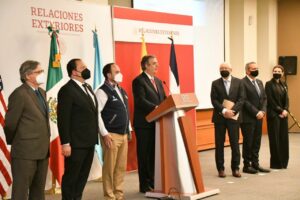The Times investigation found that the bombing was initiated by a secret American special unit, Task Force 9, which was responsible for ground operations in Syria. The task force worked so secretly that at times it did not even inform its own military partners of its actions. In the case of the bombing of Baghuz, the command of the American air force in Qatar had no idea that the attack was coming, said an officer who served in the command center.
In the minutes after the strike, an alerted Air Force intelligence officer called an Air Force lawyer at the operations center who was responsible for establishing the legality of strikes. The attorney ordered the F-15E squadron and drone crew to keep all videos and other evidence, according to documents received by The Times. He went upstairs and reported the strike to his chain of command. He said it was a possible violation of the Armed Conflict Law – a war crime – and the regulations required a thorough, independent investigation.
But a thorough, independent investigation never took place.
This week, after the New York Times reported its findings to the U.S. Central Command overseeing the air war in Syria, the command for the first time confirmed the attacks, saying that 80 people were killed but the air strikes were justified. The bombs killed 16 fighters and four civilians. In the case of the other 60 people killed, it was not clear that they were civilians, also because women and children in the Islamic State sometimes took up arms.
“We abhor the loss of innocent lives and are taking all possible measures to prevent them,” said Captain Bill Urban, the command’s main spokesman, in the statement. “In this case, we reported and investigated the strike ourselves and assume full responsibility for the unintentional loss of life.”
The only assessment made immediately after the attack was made by the same ground unit that ordered the attack. It found the bombing was lawful because it killed only a small number of civilians while targeting Islamic State fighters to protect coalition forces, the commando said. Hence, no formal war crimes, criminal investigation or disciplinary notice is warranted, it said, adding that the other deaths were accidental.
But Air Force attorney Lt. Col. Dean W. Korsak believed he had witnessed possible war crimes and repeatedly urged his leadership and Air Force crime investigators to act. When they didn’t, he alerted the independent Inspector General of the Department of Defense. Two years after the strike, when Colonel Korsak saw no evidence that the Guard Dog Agency was taking action, he emailed the Senate Armed Forces Committee, informing staff that he had top-secret material to discuss, adding: “I am taking great risk military retaliation for sending this message.”
“Senior US military officials deliberately and systematically bypassed the deliberate strike process,” he wrote in the email The Times received. Much of the material is secret and needs to be discussed using secure communication, he said. He wrote that one unit had deliberately entered false strike log entries “in a clear attempt to cover up the incidents.” Citing the “shockingly high” death toll, he said the military had not followed its own demands to report and investigate the attack.












/cloudfront-us-east-2.images.arcpublishing.com/reuters/JEUL2B5V7BJCFMRTKGOS3ZSN4Y.jpg)



/cloudfront-us-east-2.images.arcpublishing.com/reuters/DYF5BFEE4JNPJLNCVUO65UKU6U.jpg)

/cloudfront-us-east-2.images.arcpublishing.com/reuters/UF7R3GWJGNMQBMFSDN7PJNRJ5Y.jpg)












